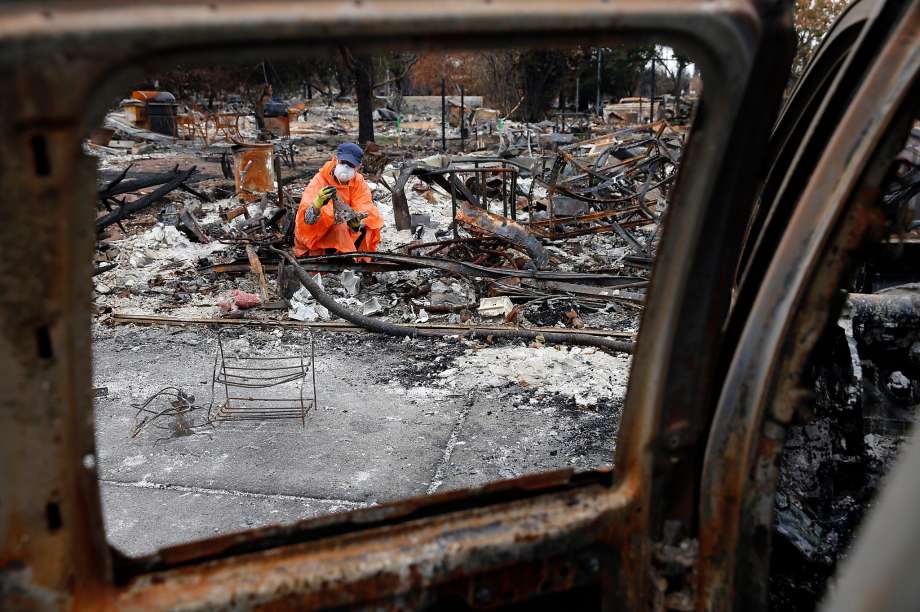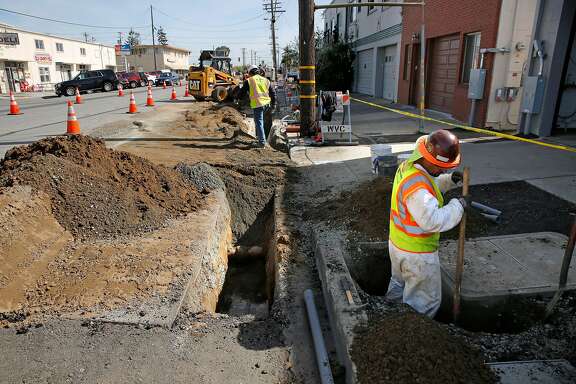Insurers escalate emotional trauma suffered during the wildfire
Insurers escalate emotional trauma suffered during the wildfires
March 13, 2018 Updated: March 14, 2018 4:35pm

Photo: Michael Macor, The Chronicle. Teresa Philbin was among the thousands whose lives were thrown into turmoil when fires raged through Wine Country last fall.
Imagine that at 3 a.m. you escape a wall of flames to save your life, and everything you own is gone in an instant. For many of us, this was reality. The Wine Country wildfires took our homes, our belongings, our neighborhoods, and in some cases our pets and even our co-workers and friends. We learned, firsthand, that bad things can happen.
Five months later, many are still dealing, every day, with the aftermath of the fire disaster, caring for children and elderly parents whose lives have been disrupted, working full-time jobs, trying to find stable housing. For most of us, there is unspoken grief; we lost every single thing we have ever owned — gardens tended for years, quilts sewn with friends, children’s art projects, family photos. Without warning, it all burned to ashes.
We had bought insurance to help us after a disaster. The agents and the companies they represent promised us “peace of mind;” we were in good hands, and they would stand by us, just like a good neighbor. They did not tell us that their contents claims process would immeasurably escalate our emotional trauma.
Our insurance companies will not send us a settlement check for the total contents for which we are insured. Instead, we can only have a percentage of the amount for which we paid premiums; to receive full compensation, we must prepare a detailed inventory — listing the description, age, condition and replacement cost (with Web links) of each item. We must attach receipts for every item we replace; we are encouraged to use Excel spreadsheets.
A few companies have mercifully waived this requirement; others have not.
This process can take 200 to 300 hours plus many more to negotiate the value of each item in light of depreciation. This time is precious when energy is depleted and the capacity to cope is overwhelmed. Many elderly individuals cannot do it at all.
People need this precious time to attend to children and elders traumatized by the fires. People are exhausted after more than five months of dealing with stress. Instead of taking care of themselves, they stay up for hours each night dutifully complying with their insurance companies’ requirements.
Time is not the only issue. Traumatic memories of the fire are commonly triggered by the process of re-envisioning one’s home and all that has been taken. Each hour spent doing the inventory causes more trauma. When I work to recall the items on my dresser, for example, I think again of the night of the fire, when I was fumbling in the pitch darkness for the flashlight I kept there. I hear my husband’s eerily calm voice telling me the fire is near and we need to get out, now.
As I work on my inventory, my heart rate rises dramatically, and as I remember to add to the dresser list my deceased mother’s earrings, I also feel sad. Similar experiences attend my work on our kitchen contents, our backyard garden, and my library from four decades as a psychology professor. This process is emotionally destructive.
Recall of a traumatic loss must be done in a safe context, with help from professionals or supportive loved ones.
Listing contents and negotiating with an adjuster perpetuates trauma through feelings of powerlessness; the insurer decides what will and what will not be reimbursed. Like the fire, the insurer is completely in control.
Corporate leaders in the insurance industry appear not to understand the human dimensions of loss and trauma. They might be well versed in the business side of their industry, but until they devise policies that support human beings through disasters, their advertisements offer empty promises of support and hope for recovery.
In July 2015, after a career as a professor of psychology at UC Riverside, Robin DiMatteo moved with her husband to Santa Rosa. In the early morning of Oct. 9, 2017, the Tubbs Fire drove them from their home; they came to San Francisco to be with family, and have decided to stay and set down roots here.



